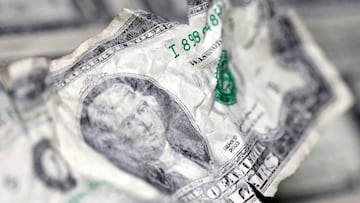Third stimulus check: how you might save $3,100 in taxes with the new payment?
New analysis shows that the Democrats’ covid-19 relief bill would reduce household federal tax bills by an average of $3,100 each this year.

A new coronavirus relief bill would reduce household federal tax bills by an average of $3,100 each this year, according the Urban-Brookings Tax Policy Center.
The bill, drawn up by House Democrats and based on Joe Biden’s American Rescue Plan would include a fresh direct round of stimulus payments to individual Americans.
The covid-19 relief bill is supported by 76% of Americans, including 60% of Republican voters.
76% of voters support President Biden's $1.9T relief bill that is set for a House vote on Friday, according to a Politico / Morning Consult poll. https://t.co/JDf7CKakuH
— MSNBC (@MSNBC) February 25, 2021
How will you save up to $3,100 in taxes with the new stimulus bill?
The up to $3,100 tax savings would come from four major provisions in the legislation advanced by the House Ways and Means Committee last week:
The $1,400 stimulus payments, which are technically an advance tax credit, which also explains the reason you won’t be paying tax on the stimulus check.
An expanded child tax credit.
An expanded income tax credit.
A boost to the tax credit for those paying for child-care.
The Tax Policy Center’s analysis emphasised that two-thirds of the tax savings will go to households earning less than $91,000 a year, in other words low to middle income families. That’s not to say higher-income households won’t also receive some relief: around 11% of the proposed benefits will go to families making more than $164,000.
How does the tax reduction work?
When you come to file your taxes next year the credits you’re owed by the government give you a dollar-for-dollar reduction in how much you owe in income taxes.
Plus, some of those credits would be refundable for 2021. This means if your tax liability drops to zero, the IRS will send you a refund - or rebate - for a set amount, putting money directly back in your pocket.
Will the coronavirus relief bill make it through Congress?
President Joe Biden is traveling the country this week to garner further public support for his $1.9 trillion relief plan, which was the blueprint for the legislation moving forward in Congress.
The bill is due to face a vote in the House of Representatives as early as Friday, which is expected to pass with ease, Democrats hold a ten-seat majority and no dissentions are expected for what is a crucial piece of the Biden administration’s agenda.
Related stories
In the Senate, though the bill may face some opposition, for example Senator Joe Manchin has already voiced his concern about the proposed minimum wage rise to $15 per hour, which may not make it to the final bill.
For all the latest updates on the stimulus bill as it happens, follow our dedicated live blog.